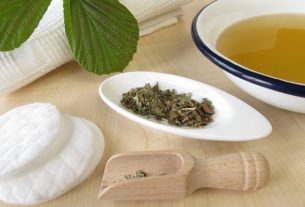Cow paw is a medicinal plant that helps control blood sugar, prevent urinary infections, help combat fluid retention and prevent cardiovascular diseases.
The scientific name of cow’s paw is Bauhinia forficataand the normally used part of the medicinal plant is its leaves, flowers and roots, which can be used in the form of tea, capsules or tincture.
Pata de vaca can be found in herbalists, health food stores or compounding pharmacies, but should be used under the guidance of a doctor or other health professional who has experience with the use of medicinal plants.

What is it for
Cow paw has several health benefits, the main ones being:
1. Help control blood sugar
Some studies carried out on laboratory rats show that pata de vaca can help control blood glucose, due to the presence of flavonoids in its composition, especially campferitrin, which was able to reduce blood glucose by stimulating muscle cells to use the glucose present in the blood, which may be useful in helping to treat diabetes.
Furthermore, cow’s paw has diuretic properties, which stimulate the production of urine and elimination of excess sugar in the urine.
Still, it is important to highlight that more studies are needed to prove these benefits. Furthermore, cow’s paw does not replace diabetes treatment recommended by your doctor. See how diabetes is treated.
2. Help in the treatment of urinary problems
The campferitrin present in cow’s paw has a diuretic effect, in addition to being able to help repair damage to kidney cells, which can be useful to help treat urinary problems, such as urinary tract infections, bladder or kidney stones, for example. example.
3. Combat fluid retention
Cow paw can be used to help reduce swelling, reducing fluid retention throughout the body due to its diuretic properties, which increase urine elimination.
Furthermore, due to the increased elimination of water by the body, cow’s paw can help control high blood pressure.
4. Prevent cardiovascular diseases
Cow paw has antioxidant properties that help reduce bad cholesterol, which is responsible for forming fatty plaques in the arteries. Thus, this medicinal plant can help reduce the accumulation of fats in blood vessels and reduce the risk of cardiovascular diseases such as atherosclerosis, heart attack or stroke.
However, regular consumption of cow’s paw does not replace medical treatment with medicines and does not exclude the need to eat a healthy diet, low in fat. Check out the main remedies to lower cholesterol.
5. Help fight cancer
Some studies carried out in the laboratory with cervical, breast and liver cancer cells show that the lectin present in cow’s paw can help reduce the proliferation or increase the death of cells from these types of cancer.
However, studies in humans are still needed to prove this benefit.
Does cow paw lose weight?
Cow paw can help with weight loss due to its diuretic action, which helps eliminate excess fluids, which can cause bloating and weight gain.
However, the plant does not help eliminate body fat, and does not directly affect the weight loss process. Still, the plant can be used initially to eliminate fluid accumulation and prepare the body for the weight loss process. To lose weight, it is important to practice regular physical activity and have a balanced diet, as recommended by your nutritionist. See how to follow a diet to lose weight healthily.
How to use
The normally used part of the cow’s paw is the leaves, roots or flowers, from which substances with medicinal properties are extracted, generally for the preparation of tea, capsules or tincture.
1. Cow paw tea
Cow’s paw tea can be used to help control blood sugar, fluid retention or urinary problems, for example.
Ingredients
- 1 dessert spoon of dried or fresh chopped cow paw leaves;
- 1 cup of boiling water.
Preparation mode
Add cow paw leaves to boiling water. Cover and let rest for 5 to 10 minutes. Strain, wait for it to cool and drink 1 to 2 cups of cow’s paw tea per day, preferably after a meal.
2. Cow paw capsules
Pata de vaca in capsule form must be taken orally, and the normally recommended dose is 250 mg capsule per day, according to medical advice.
3. Cow paw tincture
Another way to use pata de vaca is in the form of a tincture, with a recommended dose of 30 to 40 drops, three times a day, or as per medical advice.
Possible side effects
The side effects of pata de vaca are generally related to consumption in larger quantities than recommended or chronic use of this medicinal plant, which may lead to diarrhea, changes in kidney function or even the development of hypothyroidism and endemic goiter.
Additionally, cow’s paw can greatly lower blood sugar levels and cause hypoglycemia which can be noticed through symptoms such as tremor, weakness, cold sweat, pale skin, blurred vision, heart palpitations, chest pain, anxiety, confusion. mental, difficulty speaking, drowsiness. Know how to identify the symptoms of hypoglycemia.
Therefore, the use of cow’s paw should only be done with medical advice or from a healthcare professional with experience in medicinal plants.
Who shouldn’t use
Pata de vaca should not be used by children under 12 years of age, pregnant or breastfeeding women.
Furthermore, cow’s paw should not be used by people who regularly suffer from hypoglycemia, as this medicinal plant can further decrease the amount of glucose in the blood.

Sign up for our newsletter and stay up to date with exclusive news
that can transform your routine!
Warning: Undefined array key "title" in /home/storelat/public_html/wp-content/plugins/link-whisper-premium/templates/frontend/related-posts.php on line 12
Warning: Undefined array key "title_tag" in /home/storelat/public_html/wp-content/plugins/link-whisper-premium/templates/frontend/related-posts.php on line 13



